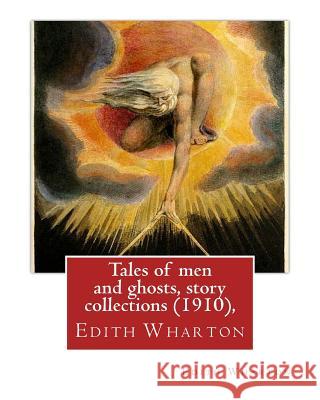Tales of men and ghosts (1910), By Edith Wharton (Short story collections) » książka
Tales of men and ghosts (1910), By Edith Wharton (Short story collections)
ISBN-13: 9781535344180 / Angielski / Miękka / 2016 / 162 str.
Edith Wharton ( born Edith Newbold Jones; January 24, 1862 - August 11, 1937) was a Pulitzer Prize-winning American novelist, short story writer, and designer. She was nominated for the Nobel Prize in Literature in 1927, 1928 and 1930.Wharton combined her insider's view of America's privileged classes with a brilliant, natural wit to write humorous, incisive novels and short stories of social and psychological insight. She was well acquainted with many of her era's other literary and public figures, including Theodore Roosevelt.Edith Wharton was born Edith Newbold Jones to George Frederic Jones and Lucretia Stevens Rhinelander at their brownstone at 14 West Twenty-third Street in New York City. She had two much older brothers, Frederic Rhinelander, who was sixteen, and Henry Edward, who was eleven. She was baptized April 20, 1862, Easter Sunday, at Grace Church.To her friends and family she was known as "Pussy Jones."The saying "keeping up with the Joneses" is said to refer to her father's family.She was also related to the Rensselaer family, the most prestigious of the old patroon families. She had a lifelong lovely friendship with her Rhinelander niece, landscape architect Beatrix Farrand of Reef Point in Bar Harbor, Maine. EDITH WHARTON (1862-1937) was one of the most remarkable women of her time, and her immense commercial and critical success-most notably with her novel "The Age of Innocense" (1920), which won a Pulitzer Prize-have long overshadowed her small but distinguished body of supernatural fiction. Some of her finest fantastic and detective work (which oft times overlap) was first collected in 1909 in "Tales of Men and Ghosts." The psychological horror is as important as the literal one here, and subtle ambiguities characterized by the best of Henry James's work (such as "The Turn of the Screw") are also present in Wharton's character studies, such as "The Bolted Door." Is the protagonist a murderer, or is he mad? In the end it may not matter, for it is his descent into madness and obsession that gives the story its chilling frisson. Other tales present men (or ghosts, or what men believe to be ghosts) in a variety of lights, from misunderstood monsters to vengeful spirits to insecure artists. If you have never read Edith Wharton's fantasy work before, you will be captivated and delighted. Without a doubt, this is a landmark book, and an important addition to the Wildside Fantasy Classics line.











